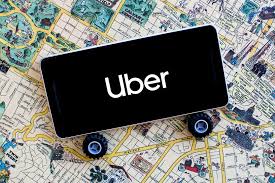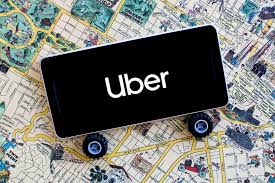
The United States based ride hailing company Uber has been dealt a severe blow by a top court in France that has recognized the company’s drivers as employees. Analysts say that this could completely upend the business model of the company as it might now need to expend more in by way of more benefits to its drivers such as more taxes and benefits such as paid holidays.
France’s wider “gig economy” could also be dealt a blow by the latest decision on Uber by the Cour de Cassation. Other companies offering ride haling services and app based food delivery services such as Deliveroo, Just Eat-Takeaway and UberEats are completely dependent on freelancing and self employed riders to deliver food ordered by customers on the apps. If the Uber decision is extended to cover such companies, they could end up meeting a range of employment requirements and benefits for the riders and drivers as demanded by labour laws.
A lower court of appeal in France had previously passed verdict on Uber that its drivers cannot be identified as being self employed contractors because the driver was unable to build his own clientele or set prices according to his wishes and therefore was completely dependent on the company and a subordinate of the company. That ruling was upheld by the Cour de Cassation.
“When connecting to the Uber digital platform, a relationship of subordination is established between the driver and the company,” the court said in a statement. “Hence, the driver does not provide services as a self-employed person, but as an employee,” it added.
Currently very few of the otherwise legally warranted payments are made to its drivers by Uber including taxes for the welfare system of France and this latest decision by the French top court could also pave the way for other drivers to demand that their employment position be reclassified with respect to Uber.
“It’s an entirely different business model (for Uber),” said Cédric Jacquelet, a partner at Proskauer law firm in Paris. “It requires much more legal and human resources, at a much higher price,” he added. It is likely possible that Uber will now review the conditions of working for its drivers offering their services in and change them in a manner that the drivers can no longer be classified as employees of the company.
Similar legal challenges have also cropped up against Uber in a number of the markets that it operates in such as Brazil to Colombia as well as in its home market of the United States.
“The ruling does not reflect the reasons why drivers choose to use Uber: the independence and freedom to work if, when and where they want,” Uber said in a written statement. “Over the last two years we’ve made many changes to give drivers even more control over how they use Uber, alongside stronger social protections,” it added. The company however noted that the decision of the court does not amount to an automatic and immediate re reclassification of drivers.
(Source:www.reuters.com)
France’s wider “gig economy” could also be dealt a blow by the latest decision on Uber by the Cour de Cassation. Other companies offering ride haling services and app based food delivery services such as Deliveroo, Just Eat-Takeaway and UberEats are completely dependent on freelancing and self employed riders to deliver food ordered by customers on the apps. If the Uber decision is extended to cover such companies, they could end up meeting a range of employment requirements and benefits for the riders and drivers as demanded by labour laws.
A lower court of appeal in France had previously passed verdict on Uber that its drivers cannot be identified as being self employed contractors because the driver was unable to build his own clientele or set prices according to his wishes and therefore was completely dependent on the company and a subordinate of the company. That ruling was upheld by the Cour de Cassation.
“When connecting to the Uber digital platform, a relationship of subordination is established between the driver and the company,” the court said in a statement. “Hence, the driver does not provide services as a self-employed person, but as an employee,” it added.
Currently very few of the otherwise legally warranted payments are made to its drivers by Uber including taxes for the welfare system of France and this latest decision by the French top court could also pave the way for other drivers to demand that their employment position be reclassified with respect to Uber.
“It’s an entirely different business model (for Uber),” said Cédric Jacquelet, a partner at Proskauer law firm in Paris. “It requires much more legal and human resources, at a much higher price,” he added. It is likely possible that Uber will now review the conditions of working for its drivers offering their services in and change them in a manner that the drivers can no longer be classified as employees of the company.
Similar legal challenges have also cropped up against Uber in a number of the markets that it operates in such as Brazil to Colombia as well as in its home market of the United States.
“The ruling does not reflect the reasons why drivers choose to use Uber: the independence and freedom to work if, when and where they want,” Uber said in a written statement. “Over the last two years we’ve made many changes to give drivers even more control over how they use Uber, alongside stronger social protections,” it added. The company however noted that the decision of the court does not amount to an automatic and immediate re reclassification of drivers.
(Source:www.reuters.com)














